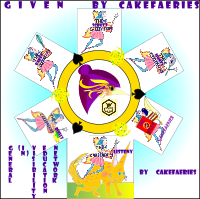 SOCIAL ANXIETY RELATING TO MEETING SIZE
SOCIAL ANXIETY RELATING TO MEETING SIZE

 SOCIAL ANXIETY RELATING TO MEETING SIZE
SOCIAL ANXIETY RELATING TO MEETING SIZE

This is Social Anxiety's second Awareness page. See here for the first, alongside an index of further related Awareness pages.
II. MEETINGS WITH SMALL EFFECTIVE GROUP SIZES GUARANTEED BY FISSION
II.1) For instance, pubs and boardgame evenings can be split up into multiple small conversations, one per table or game.
II.1.1) This can be done according to certain rules such as "groups must be of size 4 to 7".
So if an 8th person joins a 7 it must split into two 4's. This is a Fission Rule, as in "Cellular Fission".
II.1.2) Because of people leaving as well, there is sometimes also a Fusion Rule (as in "Cellular Fusion"). By this, e.g. groups of 3 or less must join larger groups, if needs be inducing Fission.
These safer spaces have been using Fusion and Fission Rules for almost two decades. We ourselves learned about such a system from student prayer groups. Moreover, group size 8 is somewhat critical as regards developing leadership and ensuring everyone contributes and is satisfied.
III. MEETINGS WITH NOT TOO FEW PEOPLE
Some people feel anxious if too few people are present at once.
"Sometimes, I find it less stressful to be in a larger group where I feel less self-conscious passively participating in the event (this is particularly the case when I'm burnt out, because I prefer to be non-speaking, but struggle to feel comfortable doing so in small groups)".
III.1) Fusion acts in this direction as regards membership, but not membership present at any particular point.
III.2) We can on request guarantee there will be 2 people present: a Custodian and a Trainee.
III.3) We cannot however turn away any further people that show up,
III.4) Nor can some kinds of meetings be split into isolated submeetings for security reasons.
Some meeting types are more amenable to this.
Be this e.g. by easy-split activity.
Outdoor out of earshot but within line of sight,
Or by being likely to have four or more Custodians present at once, permitting a split that remains safe.
III.5) Some people want to know, before entering a group meeting, around how many people are expected to be there at any given time.
III.6) Finally, some people feel anxious if split from their Ally.
If a meeting needs to split, we respect this.
Aside from the above Socially-Anxious reason, a meeting might split for e.g. the following reasons.
a) Pandemic restrictions.
b) To focus on two completely different things, e.g. two very distinct Safer Space populaces.
c) To keep two people who don't get on apart.
Other instances of splits into smaller units involve Quiet Rooms at Conventions, Squashes, Reunions or other kinds of large meeting.
And Breakout Rooms in video-conferencing set-ups (themselves much of how Socs meet during pandemic conditions).
IV. QUIET ROOMS
Conventions and some very large e.g. multi-society meetings may be able to provide these.
IV.1 They come with rules. The intention is as a place where nobody talks with anyone else.
IV.2 They can contain 1-Person Icebreakers such as art. Soft toys. Other sensory, fidgety or stress-relief toys.
At Nine Worlds, these included places to lie down and such as bean bags.
Also water and snacks.
The room will have soft furnishings, including bean bags, cushions and a place to lie down.
Water will be available just opposite the entrance to the Quiet Room. And a fruit bowl, so people are able to have a snack, even if they can�t face leaving the room and dealing with people.
Ear plugs and eye masks are also a good idea (Conventions are long).
And arrangements for a lack of background noise.
V. BREAK-OUT ROOMS
1) Some platforms support III.5 (knowing how may people are in there beforehand) but others do not.
Microsoft Teams is really good for this, because it tells you before you enter how many people there are in the meeting.
Zoom, Google Meets and TimeOut for now aren't believed to have this feature (April 2021).
2) Zoom also does not permit new alias on joining a meeting. So upon leaving a meeting, change name to something like 'name appearing shortly'. Using this for all meetings means one eed not go to meetings in an expected order, while not outing oneself or de-aonymizing oneself. In this respect, Timeout automatically asks for handle to use before entering meeting. I.e. no assumptions of people just using own names, or single handle for all meeting groups, or by extension of a single gender over all meetings one goes to.